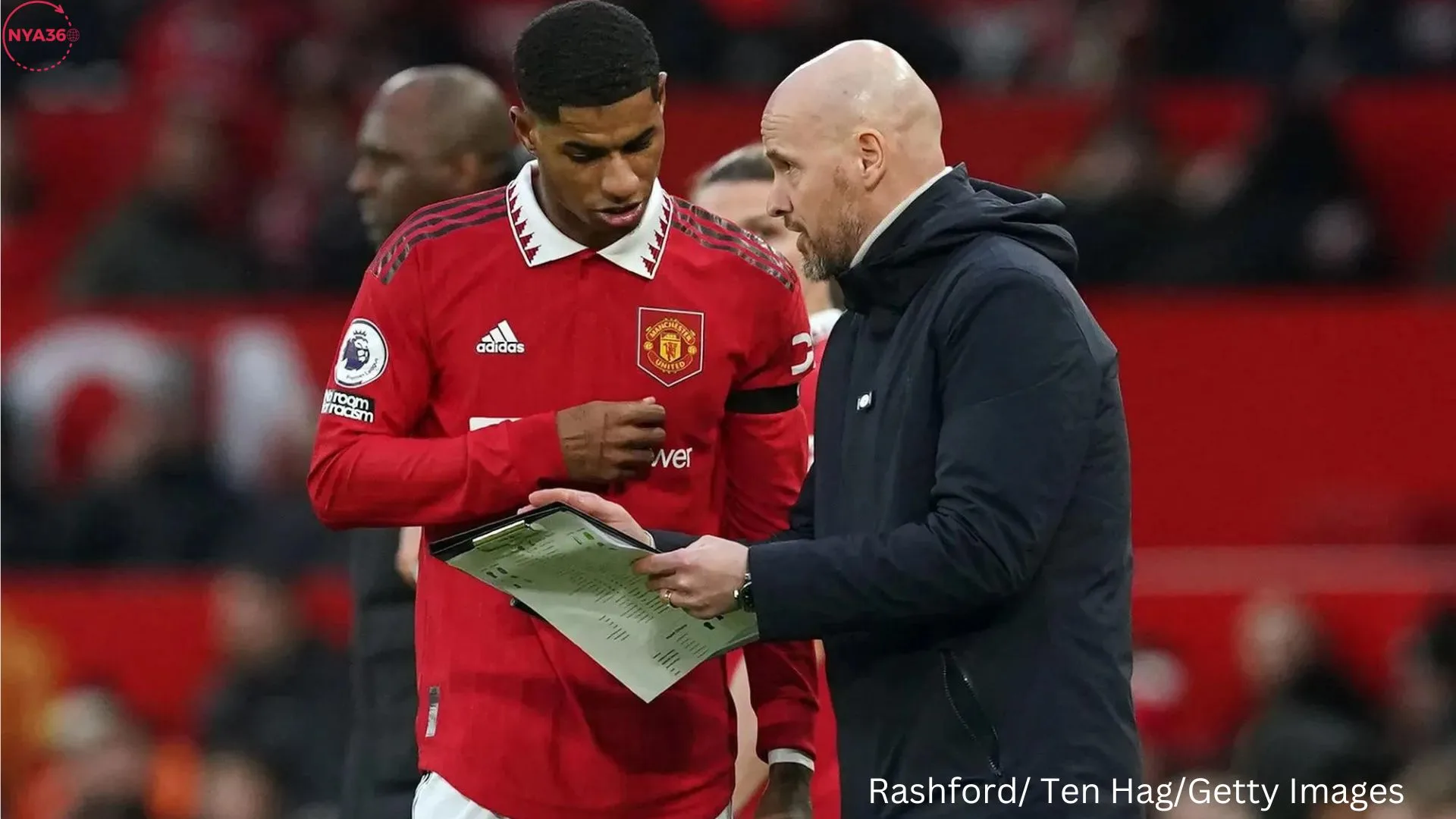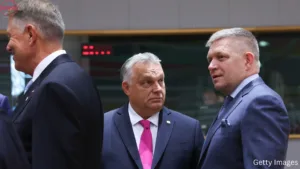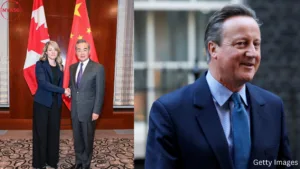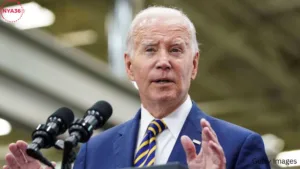In the realm of professional football, the conduct of players outside the field frequently comes under close examination by fans, the media, and club administration. Marcus Rashford, a key player at Manchester United, has recently come under scrutiny for his reported appearance at a night club in Belfast. This has sparked discussions about professionalism and the standards that are expected from athletes who are in the public eye.
The scenario became more interesting when it was disclosed that the manager, Erik Ten Hag, encountered limitations in addressing Rashford’s actions without risking his own job security. A knowledgeable insider revealed that the manager was effectively constrained, compelled to carefully manage a delicate equilibrium between disciplinary actions and the probable loss of his own job.
Unexpectedly, Ten Hag announced that the Marcus Rashford case had been resolved and was no longer being examined. The management stated that Marcus has taken responsibility, and about the other matters, it is an internal issue. This news elicited surprise and led to conjecture over the internal workings at Manchester United and the potential consequences of such occurrences on team spirit and effectiveness.

The key issue pertains to Rashford’s purported absence of deference, as sources indicated that he was observed at a nocturnal establishment in Belfast instead of fulfilling his obligation to participate in football training with Manchester United. In the realm of professional athletics, the term “lack of respect” holds significant importance, as it pertains to the fundamental characteristics of dedication and self-control.
The episode highlights the wider dilemma that managers and clubs encounter in striking a balance between granting players personal autonomy and ensuring they are held responsible for their professional obligations. The perennial difficulty encountered by football clubs is in managing the confrontation between individual preferences and collective responsibilities, necessitating careful navigation to prevent any disruption to team dynamics.
The position faced by Erik Ten Hag, in which his capacity to handle Rashford’s actions appeared to be limited, highlights the complex power dynamics inside football teams. The manager, who is accountable for molding the team’s performance on the field, must also traverse the intricacies and regulations established by the club’s administration. This intricate choreography frequently entails making choices that are in accordance with both the club’s principles and the manager’s vision for achieving success.
The expeditious decision made by Ten Hag prompts inquiries regarding the extent of responsibility taken by Rashford and the internal protocols implemented by Manchester United to address such occurrences. Although the specifics are not revealed, this highlights the significance of handling disciplinary issues promptly in order to stay focused on the main objective: winning football matches.

The unity and spirit of a team are crucial factors in determining the success of a football club, and occurrences such as Rashford’s evening excursion have the potential to disturb the fragile harmony among the players. Clubs must create explicit norms and expectations for players to prevent individual actions from undermining the team’s collective aims.
Ten Hag’s use of the term “internal affair” implies that Manchester United intends to address the issue quietly, protecting it from unwarranted external examination. This strategy is frequently employed in the realm of football, as teams opt to handle internal matters privately in order to uphold a favorable public perception and avoid unnecessary disruptions.
Manchester United’s pursuit of success on the field is accompanied by the Rashford incident, which serves as a reminder of the difficulties involved in managing a prominent football team. Ensuring a harmonious blend of personal liberties and professional obligations, handling internal affairs with discretion, and fostering team unity are all vital elements in the complex fabric of football administration.
To summarize, the Marcus Rashford situation at Manchester United exemplifies the intricate balancing act that managers must execute when dealing with disciplinary issues while simultaneously maneuvering through the intricate power dynamics within football clubs. This incident highlights the ongoing struggle of maintaining a harmonious equilibrium between personal decisions and professional obligations in the realm of professional sports. Manchester United aims to overcome this mishap and maintain its emphasis on winning matches on the football field, highlighting the importance of resilience and adaptability in the highly competitive world of professional football.
Follow us on social media: Instagram, Threads & Twitter X @nya360_ YouTube & Facebook @nya360.





